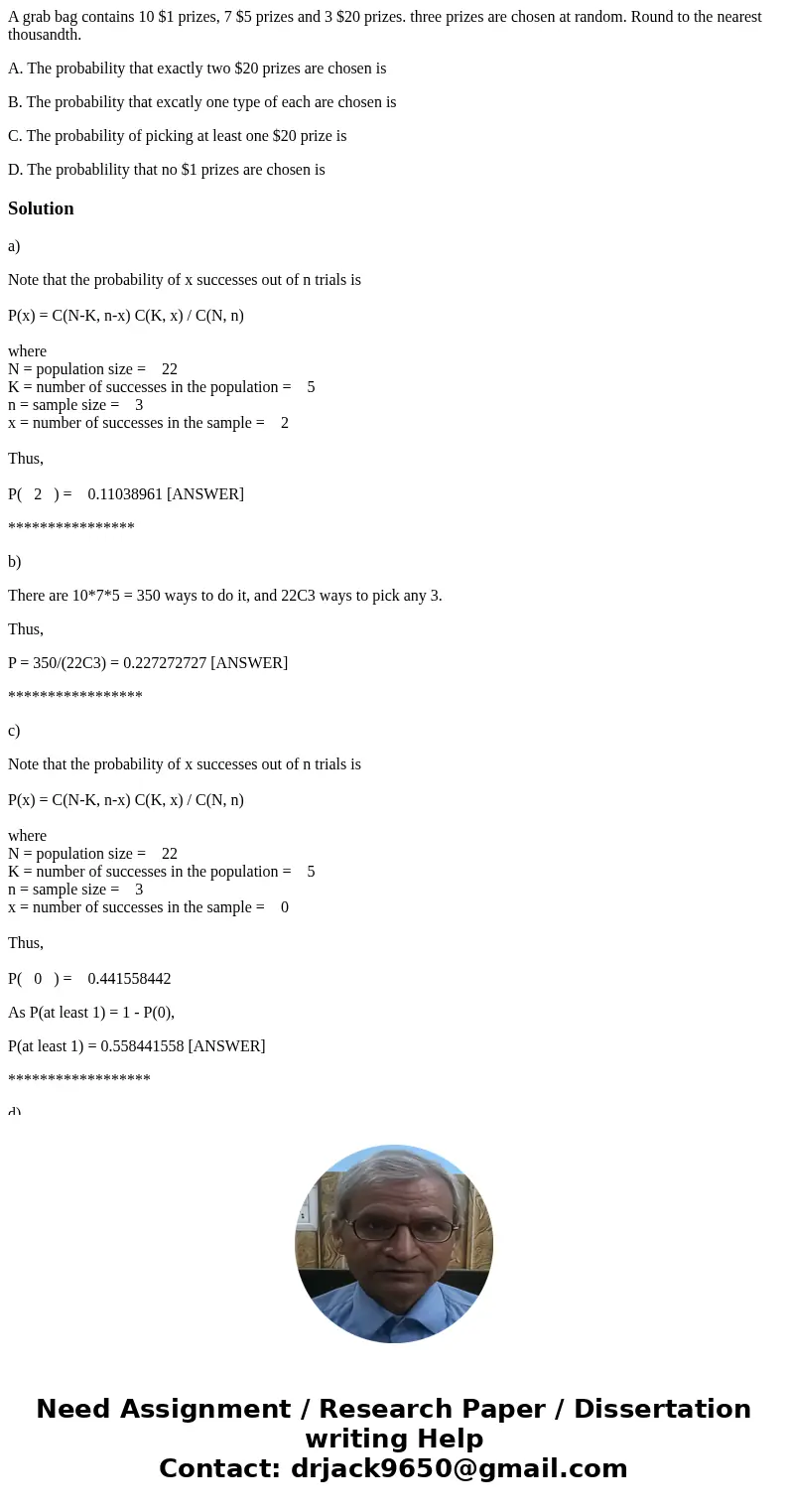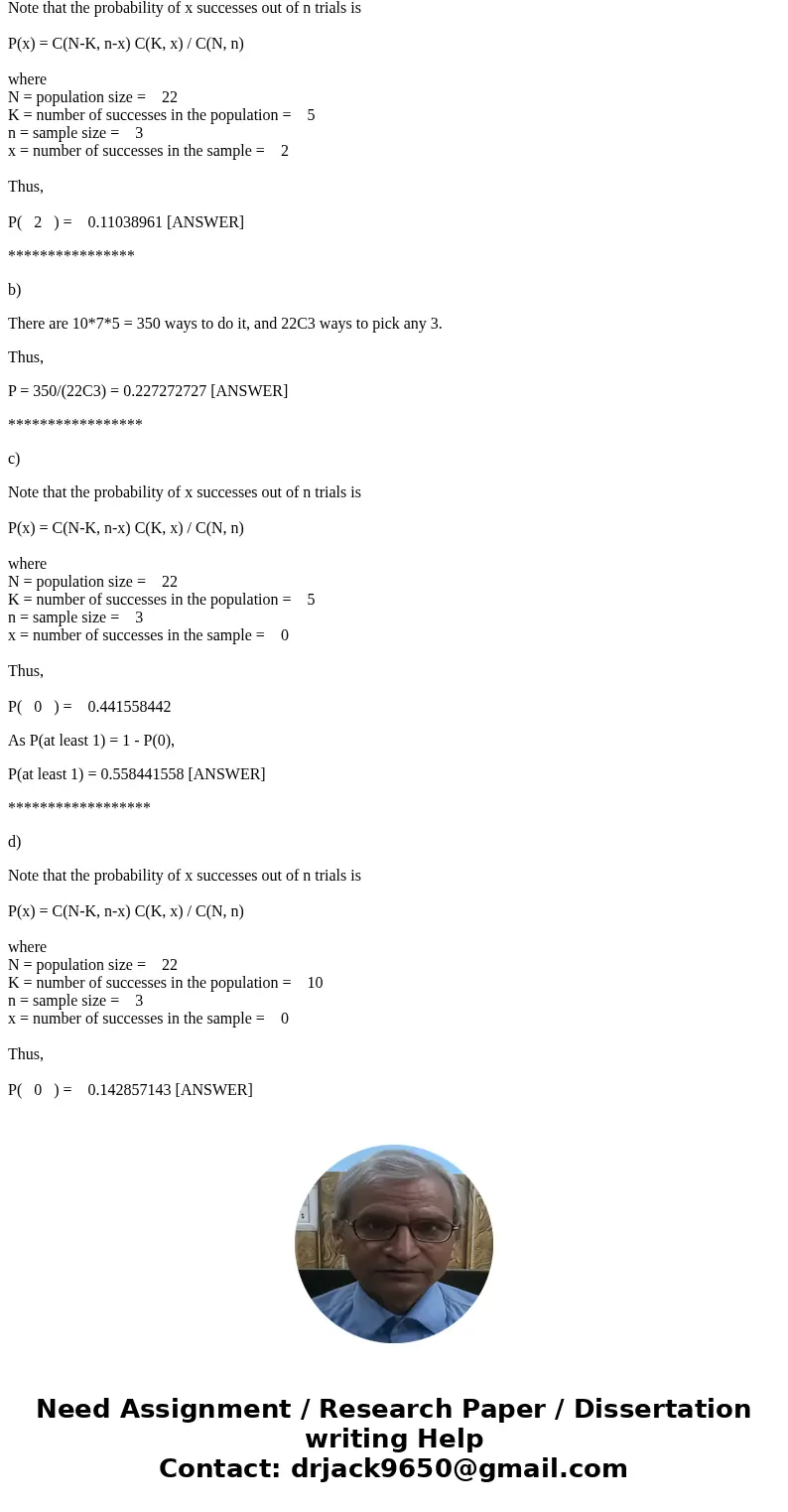A grab bag contains 10 1 prizes 7 5 prizes and 3 20 prizes t
A grab bag contains 10 $1 prizes, 7 $5 prizes and 3 $20 prizes. three prizes are chosen at random. Round to the nearest thousandth.
A. The probability that exactly two $20 prizes are chosen is
B. The probability that excatly one type of each are chosen is
C. The probability of picking at least one $20 prize is
D. The probablility that no $1 prizes are chosen is
Solution
a)
Note that the probability of x successes out of n trials is
P(x) = C(N-K, n-x) C(K, x) / C(N, n)
where
N = population size = 22
K = number of successes in the population = 5
n = sample size = 3
x = number of successes in the sample = 2
Thus,
P( 2 ) = 0.11038961 [ANSWER]
****************
b)
There are 10*7*5 = 350 ways to do it, and 22C3 ways to pick any 3.
Thus,
P = 350/(22C3) = 0.227272727 [ANSWER]
*****************
c)
Note that the probability of x successes out of n trials is
P(x) = C(N-K, n-x) C(K, x) / C(N, n)
where
N = population size = 22
K = number of successes in the population = 5
n = sample size = 3
x = number of successes in the sample = 0
Thus,
P( 0 ) = 0.441558442
As P(at least 1) = 1 - P(0),
P(at least 1) = 0.558441558 [ANSWER]
******************
d)
Note that the probability of x successes out of n trials is
P(x) = C(N-K, n-x) C(K, x) / C(N, n)
where
N = population size = 22
K = number of successes in the population = 10
n = sample size = 3
x = number of successes in the sample = 0
Thus,
P( 0 ) = 0.142857143 [ANSWER]


 Homework Sourse
Homework Sourse